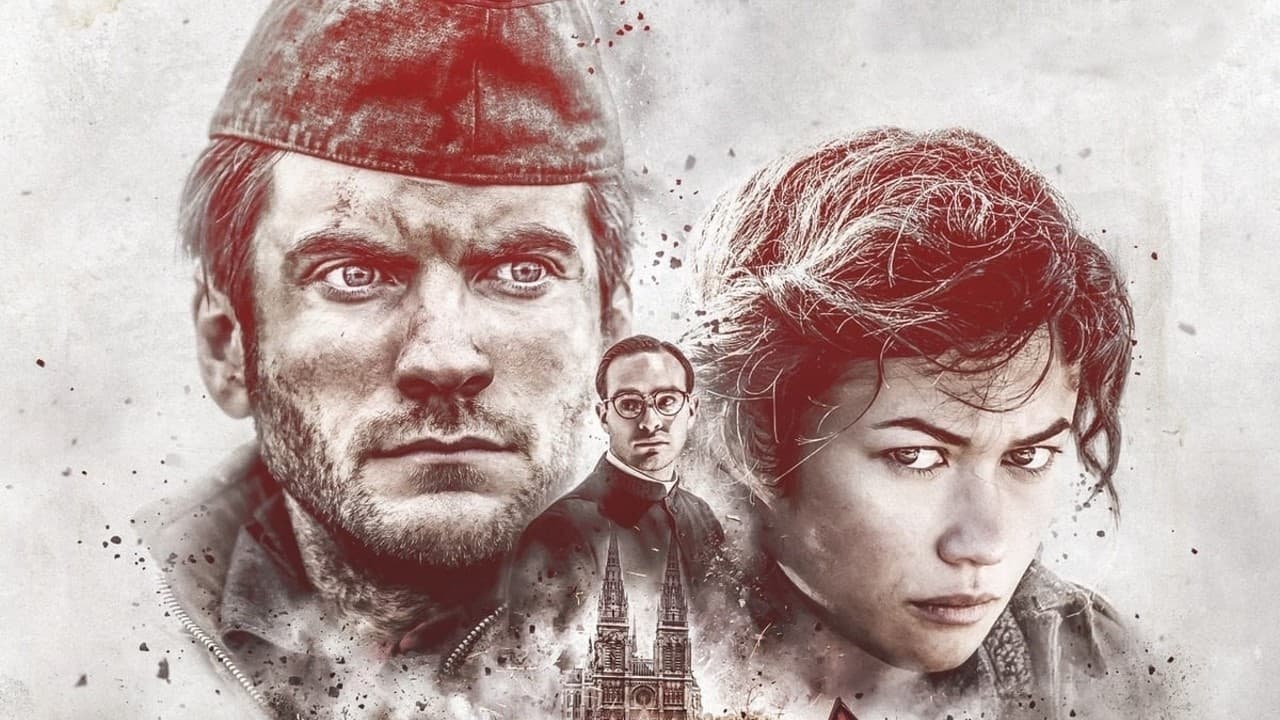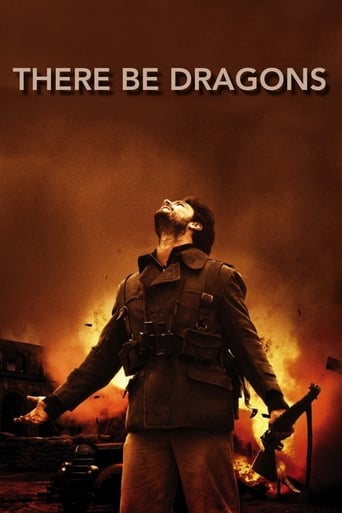



Best movie ever!
This is one of the few movies I've ever seen where the whole audience broke into spontaneous, loud applause a third of the way in.
View MoreExcellent and certainly provocative... If nothing else, the film is a real conversation starter.
View MoreStory: It's very simple but honestly that is fine.
There are certainly people more qualified than I to review a film such as this. You may want to check out Fr. Dennis at the Movies and the Opus Dei website.I have always been fascinated with the Spanish Civil War, and it forms the background of this story of the founder of Opus Dei. It is appropriate, as director Roland Joffé of The Killing Fields and The Mission is experienced in showing the dark shadows where the light can shine forth. The story of Josemaria Escriva is just such a tale and, despite the fact that Joffe is an agnostic, he manages to show the true devotion of the man of God.The story is so much more, however. It is the story of repentance and forgiveness. Forgiveness that does not do so much for the one forgiven, as it does for the forgiver.
View MoreAs far as I could see in the written user reviews I could not find a single one trying to be objective. They are all completely based on the religious fact underlying the movie than in the movie itself. For what I have seen I believe the movie is actually slow, and the actors, except for Wes Bentley and Charlie Cox, play a very poor role, accompanied with unsustainable and improbable dialogs. The casting director has the bigger fault on it. I would also criticize the inaccuracy in this Spain's History episode (civil war) and the abusive distortion of Escriva's character. It is well known from the only filmed materials of Escriva's life that he was quite temperamental, all the contrary that is shown in the movie. The character has not even a defect. It is hard to belief given the debate around such a personage. On the other hand is to remark the well displayed war scenes and both the costume design and the excellent adaptation to the 30's and 80's in Spain. The plot is also awesome, but it could have been much more exploited if Opus Dei had been apart from such a nice story of love, friendship, war and sins. It looks like, effectively, the first steps of this Catholic institution have been so forcedly introduced to a movie which could have excellently worked without them.
View MoreRealistically, this is two movies. One about the writer and his father. One about Opus Dei. The two stories are related by the thinnest of threads and the relation doesn't actually need to be there at all.I think the story about father and son, Monolo and Robert, would have been worth pursuing in more depth. The reason behind their rift is only alluded to and not explored terribly well, and their spontaneous reconciliation at the end felt forced. Deus ex machina. Perhaps a bit literally.Meanwhile, the story about Josemaria Escriva -- I can't understand why Joffe didn't show him walking on water as he did just about everything else. I found that this felt like a really nice public relations piece for Opus Dei. I guess the Church and Joffe felt they'd taken enough hits from Dan Brown and needed some positive spin.
View MoreThere are some reviews that won't do without spoilers. As this one, and since the bottom line reads, 'don't bother,' it's gonna spiked with them. Should you bother, don't expect to see an edifying depiction of the Spanish civil war. Starting with the purely dramatic aspect, you're in for an attempt of the sentimental that tries to follow in the footsteps of a number of past epics without ever succeeding. Every atrocity, every battle and every memorable scene of conflict desperately contrived to be one feels much like the flashbacks in other movies that only serve to clarify past events in order to drive on the plot, the music making it even worse and more unbelievable. Which would be bad enough. But the specific contents and their implications are simply uncomfortable, in an unwelcome sense. What is seen of murder and injustice is mainly committed by revolutionaries, e.g. the killings of priests, the unthinking mob-behavior against a single, wrongly accused. While one shouldn't doubt that each side in a civil war 'misbehaves', Franco's forces appear simply as an army in contrast and the only crimes on behalf of that side we see are committed by one of the two main protagonists, who in the end receives his personal absolution on the death bed, to sweetest music. The red rebells appear to a large part as the barbaric culprits. When this is not contrasted by what else happened the message is morally doubtful. No mentioning either that the pursue of priests had one of its roots in the catholic church indeed collaborating with Franco's regime. Does this excuse the killings? No. Does it help to make the rage a tad more understandable? Yes. But the movie doesn't intend to pay reference to what the above mentioned character called much more complicated. Latest with the end credits we know that it's a celebration of Josemaria Escriva, the founder of – Opus Dei??? Yes, indeed. And thus we follow the young priest through what the filmmakers intend to call his ordeals. Not that he has the opportunity to realize much action that makes his supposed later saintly status comprehensible. He flees, not that he shouldn't, hides, which is recommendable, crosses the Pyrenees, where the music reaches its intolerable climax. In between he has terrible moments of doubt, which perhaps moves us deeply if we are priests ourselves. To everyone who isn't but is still moved what is rather recommended is some scrutinizing of Opus Dei itself. So, what has ridden Mr. Joffe to hammer together this movie? Clearly blind catholic faith.
View More